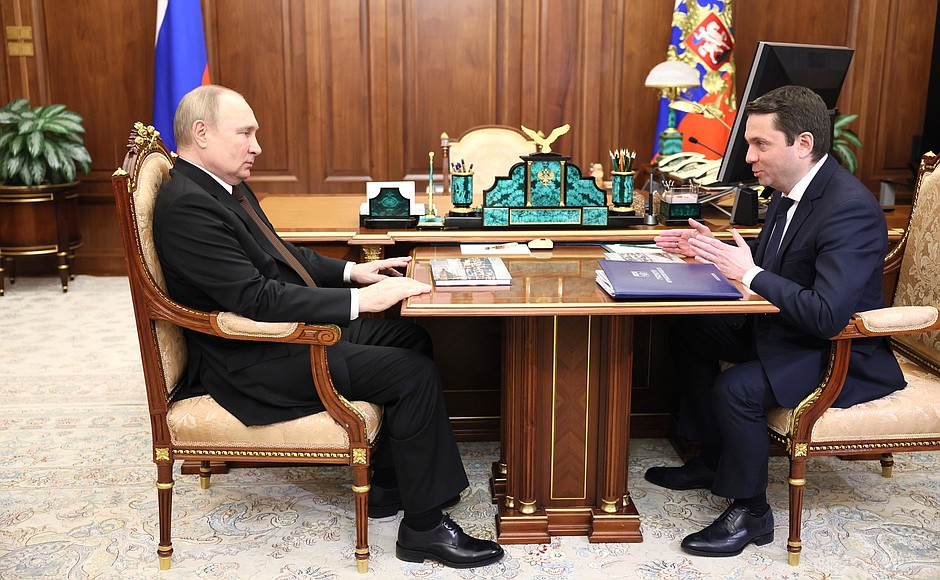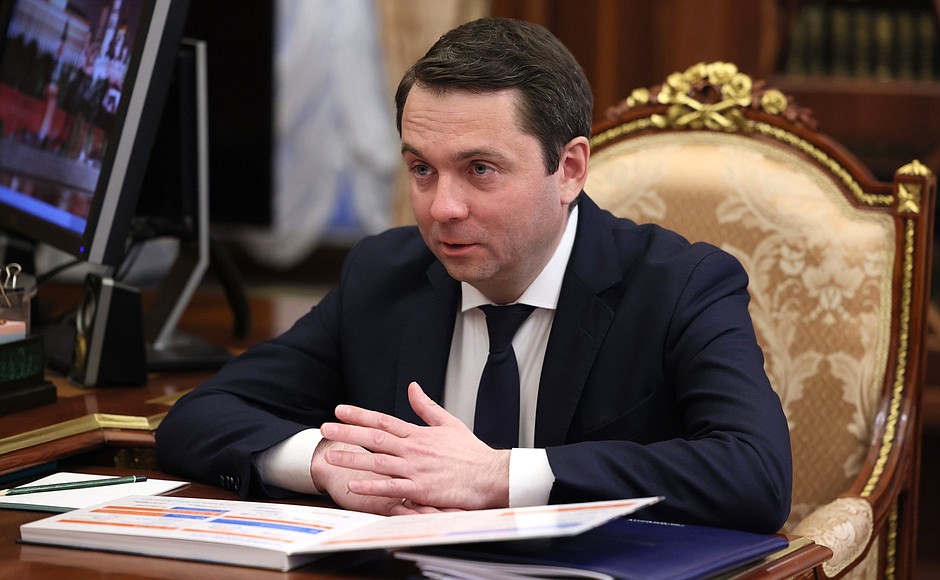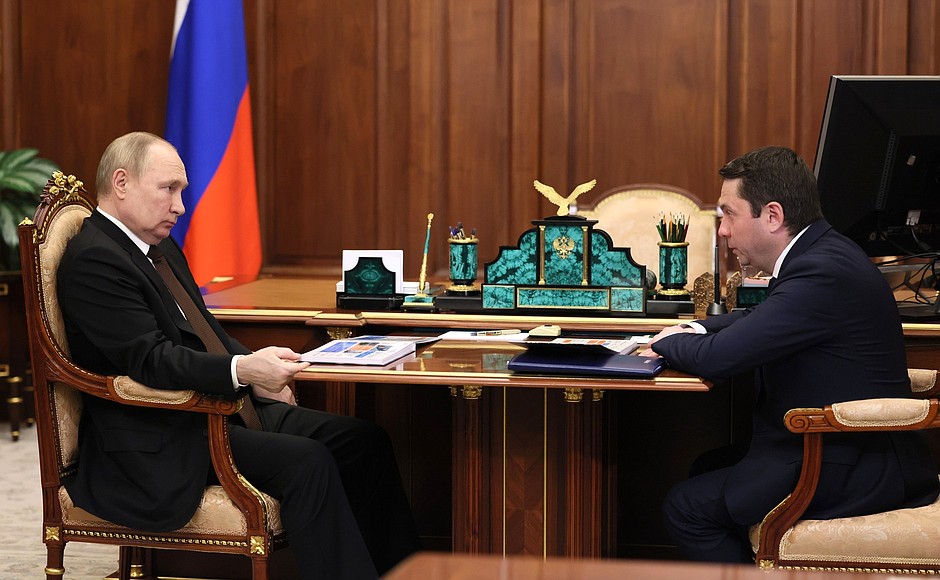At the beginning of the meeting Vladimir Putin noted that the general situation in the region was satisfactory, with gross regional product, industrial production, agriculture and construction growing. At the same time, the President noted that though investment in fixed assets was increasing, unemployment was slightly higher than the national average.
Andrei Chibis explained that the employment service was being restructured and added that it was necessary to consider the specifics of the region, such as the peculiarities of employment in the fishing industry. However, there is work to be done.
The Governor said that over the three years he has been in office, investment has grown 30 percent, or 600 billion rubles; industrial production increased 17 percent; and economic growth 16 percent. Average real income, adjusted for inflation, grew 13 percent. The revenue base has increased by 1.8 times, and public debt has decreased by a third.
The “Arctic Capital” priority development area and the Arctic incentives have yielded results. Over this period, new corporate residents have invested 100 billion rubles and created 3,000 jobs. The Arctic Hectare programme is ongoing. Over 1,700 people have received land plots, and another 600 applications are being processed. As part of regional support under the Governor's Start-up Programme, 1 million rubles have been made available for business development.
The Governor further spoke about things that could encourage further development of the region. Gas distribution was the first key issue: in particular, this would provide the capacity to process natural resources extracted on the Kola Peninsula. According to the most conservative estimates, natural gas distribution would attract 400 billion rubles in investment and create 20,000 new jobs, as well as cut household heating costs by 30 percent, and reduce sulphur dioxide emissions due to upgrading or closing polluting industries.
Andrei Chibis noted that the Government had determined the viability of a gas pipeline from Volkhov in the Leningrad Region to Murmansk (1,367 km), but that the President’s decision was necessary to start this process and determine the sources of financing.
The Murmansk transport hub was another strategic issue for the region. Last year, construction of a new port began on the western coast of Kola Bay. It will be completed in 2023, and it is important to provide a railway connection. When the project is completed, the Murmansk port will be able to receive up to 80 million tonnes of cargo by 2030. Andrei Chibis also talked about the fishing industry and ship repair. Murmansk fishing port upgrades are being launched as part of the territory’s integrated development, including new infrastructure for crab and fish processing. Draft decisions have been prepared with the Ministry of Industry and Trade and the Government. Presidential approval is required.
The discussion also touched upon the topic of integrated development of the Northern Fleet garrisons.
In addition, social issues were discussed, such as benefits for young specialists in the North, measures to increase the birth rate and attract young families with children to the region, temporary work for teenagers and those who cannot find permanent work, as well as support for veterans and “children of the Great Patriotic War,” those who survived the war as children.



